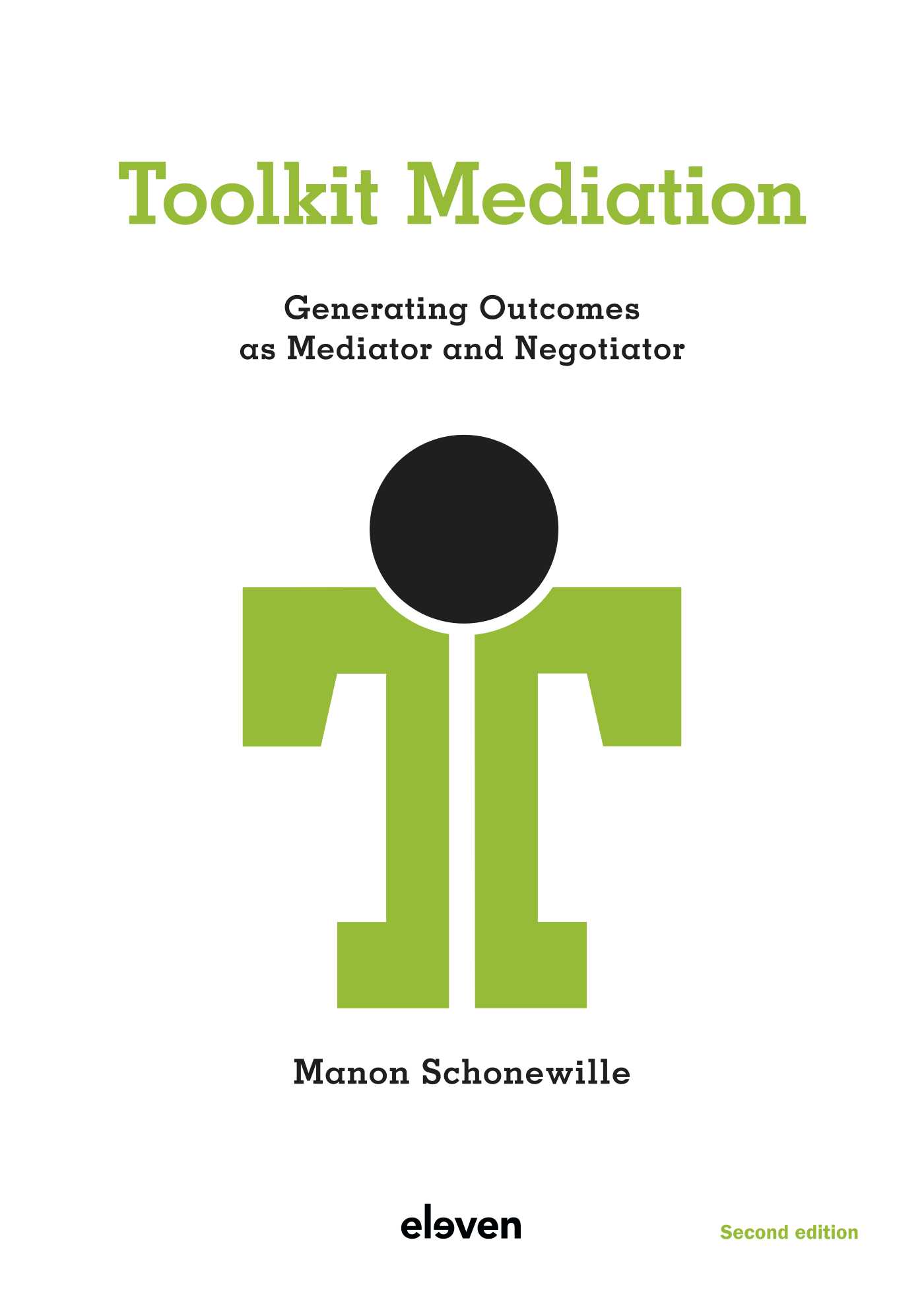Samenvatting
‘I usually take it with me into my mediations as well, as it is very helpful to have at hand and easy to access and use “in situ” (e.g., during a quick five minute break).’ (Jeremy Lack, Lawyer and ADR neutral Switzerland) ‘If you only want to purchase one book about the essence of mediation and negotiation, this is the one. Well explained, proper research and easy to read.’ (Pascal Comvalius, Erickson Mediation Institute, the Netherlands and USA) ‘How many times have exasperated negotiators and mediators wondered: How on earth can I get the negotiators to make progress in THIS situation? Take a moment for quiet reflection, pull out the Toolkit, and use its smart cross-referencing system to hit on the tool you need.’ (Michael Leathes, Former Director International Mediation Institute) ‘New mediators will welcome the tools and learn wisdom from using them. Experienced mediators will dare to think creatively outside the box by going inside this toolbox and experimenting. In short, the Toolkit is a gem that will help to advance the mediation profession.’ (Professor Jacqueline NolanHaley, Fordham University Law School, USA) ‘As mediation journeys further along the global highways and by-ways it needs ever more improvements, modifications and maintenance. The Toolkit Generating Out- comes endeavors to make those contributions to the mediating world. […] presented here in an attractive, digestible, and proven format.’ (Professor Laurence Boulle, Newcastle School of Law and Justice, The University of Newcastle Australia, and Robyn Hooworth, Collaborative Mediation Services (Aust) & HK Family Mediation Service)
Toolkit Mediation is the practical guide for mediators, providing practical tools, useful models, and checklists for mediators in practice and is applicable to all styles and methods of mediation. It is a manual for how mediation can be used by various professionals for their own purposes. Managers, mediators, negotiators, trainers, coaches, consultants, lawyers, judges and other professionals can all benefit from using mediation techniques. This practical handbook contains an overview of the treasure trove of tools a mediator has at his disposal and is written to offer a clear guide on how to “technically” apply these tools. In particular, it includes comprehensive and easy-to-use practical checklists and overviews. This publication is a vital guide for anyone involved in a (potential) dispute, or engaged in a negotiation. Mediation techniques can be used to shape the result of a negotiation favorably. A mediator can also learn how to apply other techniques from negotiation theories, for example more directive or less neutral interventions. A manager cannot afford to ignore modern conflict management in his work. A coach, consultant or (psycho) therapist can apply mediation techniques in interactions with clients, though the objectives for using these techniques differ depending per profession. A mediator is a neutral and independent third party who assists others in resolving their disputes while a negotiator is always involved as a party and therefore uses mediation techniques to improve their own outcome. Moreover, negotiation does not necessarily imply conflict. A manager can be involved in a dispute as a party, but can also be consulted to act as an intermediary by others who are engaged in a dispute. A coach, consultant or therapist quite often deals with just one party instead of two. For mediators, this book can contribute to further improve professionalism. A mediator can utilize many different interventions and techniques to control the mediation process. In practice, however, most mediators primarily use their own set of preferred tools. During an actual mediation, attention is divided between choosing what interventions should be used (or not to intervene at all) on the one hand, and managing the process on the other hand. Also, in most mediation trainings the focus is especially on the process aspect: what should be done in what phase of the mediation? The indepth technical aspect of the interventions often receives less attention. This book is written to close this gap. Because of its focus on specific and practical knowhow this publication is suitable for both practitioners and scholars.




